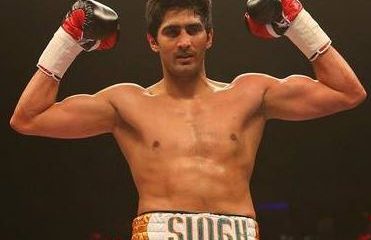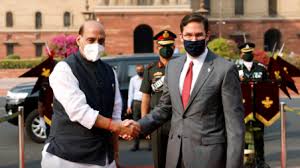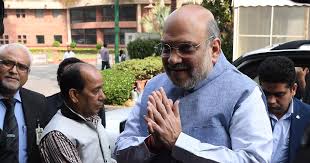National
SC rejects plea to recognise divorces granted by Church
 New Delhi: The Supreme Court on Thursday dismissed a plea that sought recognition to divorce decrees passed by ecclesiastical courts to Catholic couples.A bench of Chief Justice Jagdish Singh Khehar and Justice D.Y. Chandrachud dismissed the public interest litigation filed by Bengaluru-based Clarence Pais, who urged that divorces granted by canonical courts should also be recognised as valid as was the case with ‘triple talaq’ under the Shariah law.The petitioner contended that if divorce decrees passed by ecclesiastical courts were not recognised by the civil courts, a large number of Christian men will face prosecution for bigamy under the Indian Penal Code if they remarried after getting favourable divorce decrees from the canonical courts.
New Delhi: The Supreme Court on Thursday dismissed a plea that sought recognition to divorce decrees passed by ecclesiastical courts to Catholic couples.A bench of Chief Justice Jagdish Singh Khehar and Justice D.Y. Chandrachud dismissed the public interest litigation filed by Bengaluru-based Clarence Pais, who urged that divorces granted by canonical courts should also be recognised as valid as was the case with ‘triple talaq’ under the Shariah law.The petitioner contended that if divorce decrees passed by ecclesiastical courts were not recognised by the civil courts, a large number of Christian men will face prosecution for bigamy under the Indian Penal Code if they remarried after getting favourable divorce decrees from the canonical courts.
Section 494 of the Indian OPenal Code prohibits and punishes remarriage if a surviving spouse and a valid marriage are surviving.Section 494 deals with marrying again during the lifetime of husband or wife. “Whoever, having a husband or wife living, marries in any case in which such marriage is void by reason of its taking place during the life of such husband or wife, shall be punished with imprisonment of either description for a term which may extend to seven years, and shall also be liable to fine.”
Under the Christian canonical law, Catholics are required to marry in a Catholic church and the same could be dissolved by the canonical court only. The marriage and its dissolution by any authority other than the church is not recognised by it.Pais had sought declaration that the canon law as the personal law of Catholic Christians in India and that the dissolution of marriage by these courts as binding and recognised.
The petition cited Article 372 of the Constitution, which provides for continuance of several existing laws and their adaptation even after coming into force of the Constitution.Article 372 says: “Notwithstanding the repeal by this Constitution of the enactments referred to in Article 395 but subject to the other provisions of this Constitution, all law in force in the territory of India immediately before the commencement of this Constitution shall continue in force therein until altered or repealed or amended by a competent legislature or other competent authority.”
Referring to Article 372, the petitioner said, “All the laws in force include not only the enactment of the Indian legislature but also the Common Law of the land which was being administered by the courts in India. This includes not only the personal laws — namely the Hindu and Mohammedan laws — but that of Indian Catholic viz. the Canon Law…”
National
Foodman Vishal Singh Honored for Hunger Free World Mission in Bangkok

Lucknow: Vishal Singh, a renowned social worker from Lucknow, also known as Foodman, has once again made India proud. He was honored by the Happy Hands Gloves Cooperative Limited Company in Korathai, Thailand, for his work with the Hunger Free World Mission.
The Hunger Free World Mission’s meeting was held in Korathai, Thailand, under Vishal Singh’s leadership. Representatives from several countries, including Mr. Raja Dwivedi (Managing Director of Happy Hands Gloves Limited), Thailand Coordinator Mr. Raja Mishra, and member Mr. Varun Singh, attended the event.

Under Vishal Singh’s leadership, the attendees took a pledge to work together toward creating a hunger-free world.
Speaking on the occasion, Vishal Singh explained that the main goal of the Hunger Free World Mission is social participation. He said the mission is not just about feeding people but also about meeting other basic needs of those who are struggling. The mission focuses on helping families of terminally ill patients in hospitals by providing food and shelter. It also works to fulfill essential needs like education, jobs, and care for the elderly.
For the last 16 years, the Vijay Sri Foundation has been providing free services, benefiting thousands of people. Vishal Singh highlighted that the mission aims to gain global recognition like other organizations such as WHO, WWF, and Red Cross, which work for social causes.
During this meeting, Vishal Singh was appointed as the Chairman of the Hunger Free World Mission by representatives from various countries. They also discussed holding regular meetings in different countries to push the mission forward.
Business tycoon Dr. Abhishek Verma has also supported this humanitarian mission, vowing to promote the idea of “Seva Parmo Dharma” (Service is the highest duty) worldwide. Vishal Singh praised him, stating that people like Dr .Abhishek Verma inspire others to work for the betterment of society.
Recently, Romania’s Ambassador, Mr . Daniela Sezonov Ţane, invited Vishal Singh to the Romanian Embassy in Delhi, where they discussed the mission in detail. Impressed by his humanitarian work, she honored Vishal Singh and invited him to Romania to take the mission forward .
Food man Vishal Singh has been serving the people of India for the past 16 years. Through the Vijay Sri Foundation, he provides free meals to cancer patients & their families ,shelter, and education for women & children along with running free old-age homes in Lucknow.
In addition to his humanitarian work, Vishal Singh also addresses issues like crime and corruption through his role as Chairman of Seva Path Media and Managing Director of Vijay Sri Foundation.

During the COVID-19 pandemic, Vishal Singh and his team worked tirelessly to provide food and help to the needy, including starving children, elderly citizens, and pregnant women. Despite contracting the virus himself, he continued to assist others after his recovery. He even created a life-saving oxygen regulator using household items, which was praised by doctors both in India and abroad.
In his address at the meeting, Vishal Singh spoke about his mission to create a hunger-free world. He pointed out that India’s large population, along with issues like unemployment and poverty, has caused the country to fall on the Hunger Index. He urged people to contribute just one handful of grains daily to help create a hunger-free world.
He concluded by saying that through social participation, we can empower the people around us, meet their basic needs, and work together to build a stronger, more prosperous, and developed society.























